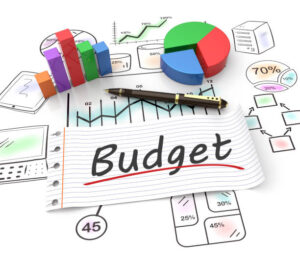Debt can feel like a heavy burden, especially when inflation and living costs keep rising. In 2025, millions are looking for smart ways to manage their finances and pay off debt faster. According to Experian, nearly 60% of adults carry some form of debt, and many struggle to keep up with payments. But what if small budget changes could free up significant money to accelerate your debt repayment journey? What if you could regain control over your financial future with proven, expert-backed strategies?
Let’s dive deep into 10 powerful budget hacks, supported by research, expert insights, and practical tips, to help you free up cash and clear your debt faster this year.
Understanding Your Debt Situation: The Foundation of Financial Freedom
Before making any changes, you need a clear picture of your debts. List every debt you owe-credit cards, personal loans, mortgages, car loans-along with their interest rates, balances, minimum payments, and due dates. This inventory is crucial because it helps you prioritize and strategize effectively.
- Why is this important? According to Aditya Birla Capital, understanding your debt fully allows you to create a focused repayment plan, avoiding missed payments and unnecessary interest[1]. It’s the first step toward financial clarity.
1. Create a Realistic and Detailed Budget

Budgeting is not just about restricting spending; it’s about knowing exactly where your money goes and making informed choices. Track your income and expenses meticulously for at least a month. Use budgeting apps like YNAB, Mint, or simple spreadsheets.
- Prioritize essentials: rent/mortgage, utilities, groceries.
- Allocate a fixed amount for debt payments.
- Identify non-essential expenses to cut.
According to Citizens Advice, a well-planned budget can reveal hidden spending leaks and free up 10-20% of your monthly income for debt repayment[7].
2. Use the Debt Avalanche Method to Minimize Interest Payments
The debt avalanche method is widely recommended by financial experts, including those at Navy Federal Credit Union. It involves paying minimums on all debts but directing any extra money toward the debt with the highest interest rate first[6]. This approach saves you the most money over time because high-interest debts cost you more.
How to implement:
- List debts from highest to lowest interest rate.
- Pay minimums on all but put extra funds on the highest-rate debt.
- Once that debt is cleared, move to the next highest.
This method is like an avalanche gaining momentum, accelerating your debt payoff while saving on interest[6][1].
3. Consider the Debt Snowball Method for Motivation
If you prefer quick wins to stay motivated, the debt snowball method might suit you better. This strategy focuses on paying off the smallest debt first, regardless of interest rate, while making minimum payments on others[6][7].
Benefits:
- Early successes boost confidence.
- Reduces the number of debts faster.
- Builds momentum to tackle larger debts.
While it may cost more interest in the long run compared to the avalanche, the psychological boost can keep you committed[7].
4. Consolidate Your Debt for Simplicity and Savings
Managing multiple debts can be overwhelming. Debt consolidation combines several debts into one loan or credit card with a lower interest rate, simplifying payments and potentially reducing costs[1][6].
Options:
- Debt consolidation loan: A personal loan with a lower interest rate to pay off multiple debts.
- 0% balance transfer credit card: Transfer high-interest credit card balances to a card offering a 0% interest period (often 12-32 months).
Make sure to consider transfer fees and pay off balances before the promotional period ends to avoid high interest[1][4].
5. Automate Payments to Avoid Late Fees and Build Discipline
Set up automatic payments for your debts and bills. Automation prevents missed payments, which can hurt your credit score and lead to penalties. It also creates consistency, a key to successful debt repayment[8].
Additional tip: Automate small transfers to savings to build an emergency fund, reducing the need to borrow in future emergencies.
6. Cut Non-Essential Expenses Ruthlessly
Review your spending habits and identify areas to cut back. This could include:
- Canceling unused subscriptions.
- Reducing dining out or takeaway.
- Shopping with a list to avoid impulse buys.
- Switching to cheaper brands or services.
According to a 2025 survey by the University of Cambridge, households that trimmed discretionary spending freed up an average of 15% of their monthly income for debt repayment[2].
7. Increase Your Income with Side Hustles or Selling Unused Items
Boosting income is a powerful way to accelerate debt payoff. Consider:
- Freelancing or gig work (e.g., rideshare driving, tutoring).
- Selling items you no longer need online.
- Monetizing hobbies or skills.
Even a few extra hundred dollars a month can make a significant difference in reducing debt faster[7].
8. Use Bi-Weekly Payments to Pay Off Loans Faster
Instead of monthly payments, make half-payments every two weeks. This results in 26 half-payments or 13 full payments per year-one extra payment annually without feeling a big pinch[8].
This simple hack reduces loan principal faster and cuts interest costs over time.
9. Remove Temptations to Overspend
Impulse purchases can sabotage budgets. To avoid this:
- Unsubscribe from promotional emails.
- Remove saved card details from online stores.
- Avoid carrying credit cards; use cash or debit instead.
- Set spending alerts on your phone.
Behavioral finance experts emphasize that controlling spending triggers is key to maintaining a budget[3].
10. Regularly Review and Adjust Your Plan
Life changes, and so should your budget and debt repayment plan. Review your progress monthly:
- Celebrate milestones.
- Adjust payments if your income or expenses change.
- Reassess priorities if new debts arise.
Consistency and flexibility together make debt repayment sustainable[1][7].
FAQs
Q: Should I pay off debt before saving?
A: Maintain a small emergency fund (3-6 months of expenses) while paying down high-interest debt to avoid new borrowing in emergencies[1][7].
Q: Which is better, the snowball or avalanche method?
A: Avalanche saves more money on interest; snowball offers motivational wins. Choose based on your personality and financial goals[6][7].
Q: Can debt consolidation hurt my credit score?
A: It may cause a small temporary dip, but managing one loan responsibly can improve credit over time[6].
Q: How much extra should I pay monthly on debt?
A: Pay as much as you can comfortably afford beyond minimums. Even small extra payments reduce interest and debt term[6].
Final Thoughts
Debt repayment is a marathon, not a sprint. By understanding your debt, creating a realistic budget, choosing the right repayment strategy, and making smart lifestyle changes, you can free up money and clear your debts faster. Remember, every small step counts toward financial freedom. What’s your first budget hack going to be today?
Keywords: budget hacks, debt payment, debt repayment strategies, debt consolidation, 0% balance transfer, budgeting tips, financial freedom, save money, increase income, debt avalanche method, debt snowball method*
This comprehensive guide draws on expert advice, university research, and up-to-date trends to equip you with actionable tools for 2025. Implement these hacks consistently, and watch your debt shrink while your financial confidence grows.
Citations:
[1] Clear Debt Faster: A 12-Month Plan to Paygies for Financial Freedom in 2025 https://www.amerantbank.com/ofinterest/debt-management-strategies-for-financial-freedom-2025/
[3] 6 steps to kick-start https://www.cnbc.com/select/guide/debt-payoff/
[4] How to pay off debt in 2025 (5 Easy Tips) | Raisin UK https://www.raisin.co.uk/banking/pay-off-debt/
[5] Top 10 Strategies for Effective Debt Collection in 2025 https://www.gobeyondcollect.com/top-10-strategies-for-effective-debt-collection-in-2025
[6] 5 Debt Repayment Strategies That Could Change Your Life https://www.navyfederal.org/makingcents/credit-debt/debt-repayment-strategies.html
[7] 7 Steps to Get Out of Debt in 2025 – Experian https://www.experian.com/blogs/ask-experian/steps-to-get-out-of-debt/
[8] Reducing Business Debt In 2025: Effective Strategies – Thrive CFO https://thrivecfo.co.za/strategies-for-managing-and-reducing-business-debt/










ho9mcx
66t59r
v5szx2
pu86is
46gu9h
kxzv33
gsbwzu
todd07
3smpxp
tvia8d
bz60ic